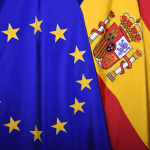The Commission welcomes the European Court of Auditor (ECA)’s extensive work on its Annual Report on the 2023 EU budget and takes note of the ECA’s valuable insights as regards the regularity of the EU budget implementation.
Main achievements of the EU budget in 2023
In 2023, the EU budget continued delivering on our priorities.
Under the Recovery and Resilience Facility (RRF), the centrepiece of NextGenerationEU (NGEU), in 2023 Member States received payments for more than 700 fulfilled milestones and targets, including in relation to 22 growth-enhancing reforms in line with country-specific recommendations under the European Semester.
Along with its NGEU the 2023 EU budget invested €159 billion (38% of its total spending) in climate-related actions for the benefit of EU citizens. This prevented, for example, around 87 million tonnes of carbon dioxide from polluting our environment annually. Moreover, the introduction of NGEU Green Bonds, which raised €49 billion by the end of 2023, has further boosted climate financing and expanded the EU sustainable finance market.
Furthermore, in the current 2021-2027 budget period, by 2023, almost €15 billion were dedicated to developing high-capacity broadband and 5G networks to enhance the digital connectivity, offering citizens and businesses better access to the digital single market.
Moreover, the EU budget played a vital role in supporting Ukraine in its efforts against Russia’s war of aggression and contributed to its path towards the accession to the EU. By the end of 2023, the EU and its Member States had provided Ukraine and its people with nearly €85 billion in assistance. This included the disbursement of €18 billion in highly concessional loans as part of an unprecedented support package through the Macro-Financial Assistance Plus instrument.
Under the European Solidarity Fund (EUSF), a tangible expression of EU solidarity with populations affected by natural disasters, over €755 million was paid out in 2023 to four Member States to support recovery and reconstruction.
Finally, in 2023, the Commission dedicated €2.4 billion in humanitarian aid, including quadrupling its humanitarian aid for Palestinians effected by the ongoing hostilities in the Middle East, with over €100 million.
Commission’s views on ECA report on the 2023 EU budget
The Commission welcomes the decision of the ECA to give the EU annual accounts a clean bill of health, for the 17th year in a row. Like in previous years, the ECA found that the collection of the EU revenues was free from significant error.
The Commission has, however, noted the ECA’s negative opinion on the regularity of spending under the Multiannual Financial Framework (MFF) and its qualified opinion on the RRF. The Commission recalls that the estimated level of error reported by the ECA is not a measure of fraud, inefficiency, or waste – but are rather administrative irregularities which do not impact the end-result of a project and are usually recovered or corrected. At the same time, the Commission agrees that improvements are needed, and it is acting accordingly.
Furthermore, given their different respective roles as external auditor and manager of the EU budget, the two institutions may have differences in their methodologies to assess whether an error has taken place, and to estimate the financial impact of that error. In some cases, this can lead to different results. The Commission continues to stand ready to work closely with the ECA to further align audit methodologies and interpretation of rules, in full respect of both institutions’ independence and prerogatives.
For instance, the Commission agrees that improvements are needed when it comes to complex spending rules, and it is actively working on them. Both the ECA and the Commission also agree on which types of spending are most prone to spending errors, and where actions need to be taken to better protect the EU budget.
Commission actively working to better protect the budget from irregularities
Thanks to the hundreds of thousands of checks performed before and after payments are made by national authorities, other partners, and the Commission itself, the Commission is well-informed about the risks to the EU budget and can take precise actions to address them. The Commission aims to keep the final level of error below 2% once programmes are closed and all checks and corrections are completed. For 2023, this goal was met, with the estimated risk at programme closure projected to be just 0.9%, fully in line with previous year’s levels.
The Commission is continually enhancing its management of the EU budget. Upon a Commission’s proposal, the co-legislators agreed on revised rules for the financial management of the EU budget which entered into force in September 2024. This will ensure that EU funding is more transparent, more digital and clearly reflects the Union’s values. As errors often result from the complexity of the rules, the Commission is constantly striving for simplification and harmonization of spending requirements. In the area of Cohesion Policy funding, for example, the legal framework applicable for the 2021-2027 spending period offers a comprehensive set of simplification measures.
Furthermore, the Commission also maintains close collaboration with those implementing the EU budget, especially national authorities, and actively raises awareness among funding recipients through outreach efforts.
Lastly, the Commission will also continue to use its preventive and corrective tools, such as interrupting and suspending payments and applying financial corrections. In 2023, the Commission and Member States implemented preventive and corrective measures for an amount of €3.8 billion.
Background
The publication of the Annual Report of the ECA, and the presentation of the Integrated Financial Accountability Reporting (IFAR) package to the European Parliament, kicks off the annual ‘discharge procedure’, taking stock of the financial management and achievements of the EU budget in 2023.
The IFAR package includes five reports from the Commission that offer a comprehensive look at how the EU budget was used. These reports are crucial for ensuring transparency and accountability about the use of taxpayers’ money.
Under the discharge procedure, the European Parliament takes into consideration the IFAR package, the ECA Annual Report and any relevant ECA Special Reports, to decide whether to approve, delay, or deny the discharge on the budget.
The European Commission collaborates closely with Member States and other partners to make sure the EU budget is spent efficiently, free from fraud and irregularities, and in line with the EU’s policy goals to benefit citizens and achieve tangible results.
For More Information: European Commission







Leave a Reply